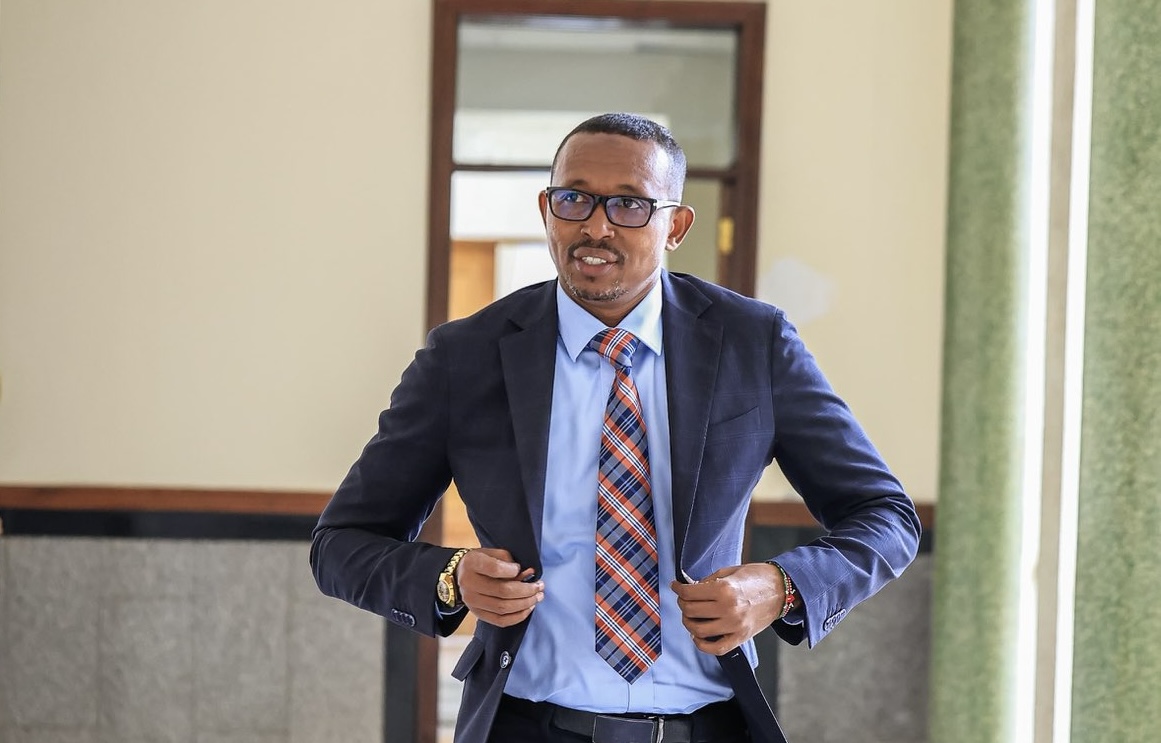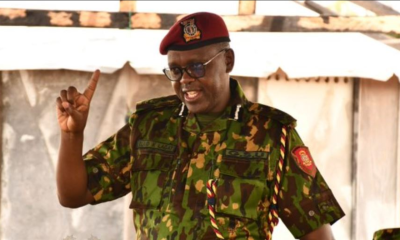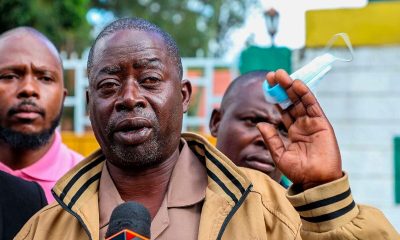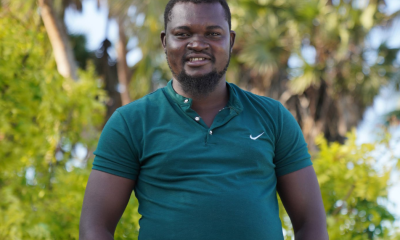Politics
Kenyan Youths Should Not Live in Fear: Moha Jicho Pevu Breaks Silence with Seven Key Questions in Albert Ojwang’s Death
Ali concluded with a resounding call: “Justice must be served, and DIG Eliud Lagat must resign immediately as he is a person of interest and prime suspect number one.”

Nairobi, Kenya – June 10, 2025 – Renowned Kenyan journalist Mohammed Ali, known as Moha Jicho Pevu, has broken his silence on the controversial death of Albert Ojwang, a 31-year-old blogger and digital activist found dead in police custody.
In a pointed post on X, Ali demanded justice and raised seven critical questions targeting Deputy Inspector General of Police Eliud Lagat, whom he accuses of being a prime suspect in Ojwang’s murder.
The case has ignited nationwide outrage, with protests erupting in Nairobi and calls for accountability growing louder.
Ojwang, a teacher and social media commentator known for his bold political critiques, was arrested in Homa Bay on Friday following a complaint by Lagat, who alleged that Ojwang had defamed him on X.
Despite the availability of local police stations, Ojwang was transferred over 350 kilometers to Nairobi’s Central Police Station. Initial police reports claimed he sustained fatal head injuries after hitting his head against a cell wall.
However, an autopsy conducted on Monday revealed evidence of head injuries, neck compression, and multiple soft tissue traumas—findings that point to torture and murder rather than self-inflicted wounds.
In his X post, Ali leveraged his background as an investigative journalist to pose pointed questions unraveling the mystery surrounding Ojwang’s death.
“Why is the complainant [Lagat] not already named a person of interest in this brutal murder? Why was Albert moved all the way to Nairobi? Why wasn’t the complainant interdicted?” he asked, among other queries challenging the police narrative.
Ali concluded with a resounding call: “Justice must be served, and DIG Eliud Lagat must resign immediately as he is a person of interest and prime suspect number one.”
The autopsy findings have fueled public anger, with dozens of activists staging protests outside the Central Police Station on Tuesday.
Chanting “Stop killing us,” demonstrators demanded transparency and the arrest of those responsible.
Ojwang’s family lawyer, Julius Juma, highlighted visible signs of severe beating—swelling on the head, nose, and ears, and bruises on his shoulders and hands—further contradicting the police’s initial account.
“This was no accident; this was a calculated act,” Juma told reporters.
The incident has reignited concerns over Kenya’s troubling history of police brutality, drawing parallels to last year’s crackdown on youth protests against a controversial finance bill, which left dozens dead and hundreds injured.
Activists also point to the recent case of software developer Rose Njeri, charged under cybercrime laws for creating a tool to oppose the same bill, as evidence of a growing clampdown on digital activism.
The Digital Content Creators Association of Kenya hailed Ojwang as a voice for the youth, amplifying demands for justice amid rising state repression.
Amnesty International’s Kenya branch, led by Irungu Houghton, labeled the death “very suspicious” and urged independent investigators to treat the Nairobi police station as a crime scene.
“The long journey from Homa Bay to Nairobi raises serious questions about the intent behind his transfer,” Houghton said.
Meanwhile, veteran opposition leader Raila Odinga issued a statement condemning the killing, adding it to a growing list of police-related deaths of young Kenyans exercising their right to free speech.
In response to mounting pressure, senior officers at the Central Police Station have been interdicted, meaning they are suspended with half pay pending an investigation by the Independent Policing Oversight Authority (IPOA).
However, no arrests have been made, and Lagat remains in his position, prompting accusations of a cover-up.
The National Police Service issued a press statement on June 8 attempting to clarify the incident, but public trust has eroded, with social media users dismissing the claim of self-inflicted injuries as implausible.
The case has sparked a constitutional debate, with citizens invoking Chapter One of Kenya’s 2010 Constitution, which asserts that all sovereign power belongs to the people.
Protesters and online activists, including lawyer Nelson Havi, have called for Lagat’s arrest, arguing that resignation alone is insufficient.
“Eliud Lagat should be prosecuted for murder,” Havi wrote on X, echoing a sentiment shared by thousands under the trending hashtag #JusticeForAlbertOjwang.
As the nation grapples with this tragedy, Mohammed Ali’s return to his investigative roots has rekindled hope among Kenyans who once admired his tenacity.
“Kenyan youth should not live in constant fear of their lives because of digital activism. This is not the Kenya we envision for ourselves or our children,” Ali declared.
With protests intensifying and international attention growing—highlighted by BBC coverage of the Nairobi demonstrations—pressure is mounting on Kenyan authorities to deliver justice for Albert Ojwang and restore faith in the rule of law.
Kenya Insights allows guest blogging, if you want to be published on Kenya’s most authoritative and accurate blog, have an expose, news TIPS, story angles, human interest stories, drop us an email on [email protected] or via Telegram
-

 Business1 week ago
Business1 week agobetPawa Empire Crumbles: Mr Eazi’s Betting Gambit Unravels Amid Partner’s Shadowy Deals
-

 News7 days ago
News7 days agoDCI Probes Meridian Equator Hospital After Botched Procedure That Killed a Lawyer
-

 Business6 days ago
Business6 days agoMinnesota Fraud, Rice Saga, Medical Equipment Deal: Why BBS Mall Owner Abdiweli Hassan is Becoming The Face of Controversial Somali Businessman in Nairobi
-

 Business1 week ago
Business1 week agoKRA Boss Humphrey Watanga In Big Trouble In Sh5.5 Billion Rice Import Scandal
-

 Investigations2 weeks ago
Investigations2 weeks agoKERRA Homa Bay Region Manager Calvince Thomas Accused of Swindling Businessman Ksh 2 Million in Phantom Tender Deal
-

 Politics6 days ago
Politics6 days agoYour Excellency! How Ida’s New Job Title From Ruto’s Envoy Job Is Likely to Impact Luo Politics Post Raila
-

 Business1 week ago
Business1 week agoState Set to Demolish Pastor Ng’ang’a’s Church in Sh28 Billion Railway City Push
-

 Business1 week ago
Business1 week agoControversial Turkish Firm Celebi Canceled in India Over Security Concerns Acquires Strategic Property in Nairobi’s Main Airport






























